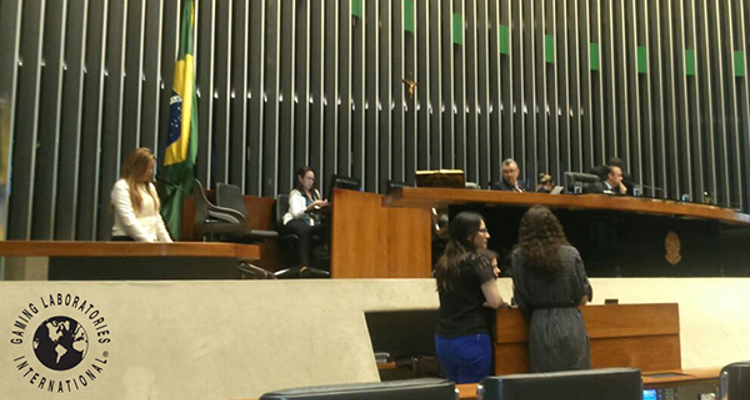Gaming and lottery testing and assessment services provider Gaming Laboratories International recently participated in an open government discussion regarding the future of legalized gambling in Brazil.
Conducted in the lower Chamber Of Deputies house of the Brazilian Congress in Brasilia, the event, which was entitled the Legal Framework For Games Of Chance In Brazil, heard statements from numerous government and industry representatives regarding proposed legislation that would permit casinos as well as slots and bingo halls.
Gaming Laboratories International was represented at the session by its Latin American And Caribbean Government Relations And Business Development Director, Karen Marcela Sierra-Hughes, and explained that she had been presented as an impartial technical and consultancy expert.
“We are honored and grateful for the opportunity that the [Chamber Of Deputies] granted Gaming Laboratories International to discuss the control and supervision processes that are adopted by regulated gaming and lottery jurisdictions around the world,” Sierra-Hughes told the session.
Sierra-Hughes told those in attendance that she was not there “to take sides on whether gaming should be legalized in Brazil” but to discuss the ways in which Gaming Laboratories International works with gambling and lottery regulatory entities around the world for the control and supervision of the industry.
“We are here to impartially present the ways that Gaming Laboratories International works with gaming and lottery regulatory entities that have successfully implemented laws and regulations as well as technical standards that allow for the control and supervision of the industry [and] minimizing the risks of fraud, money laundering, tax evasion and problem gambling,” said Sierra-Hughes.
Sierra-Hughes explained that Gaming Laboratories International has worked with 475 jurisdictions around the world that had adopted certification processes including 25 in Latin America and the Caribbean. She described Peru as a “pioneer” in the region and told those assembled that the effectiveness of any controls depends on “the strength of the technical requirements established by the regulatory entity”.
“Technical requirements address player protection, accurate revenue and tax reporting, fraud and manipulation prevention, money laundering prevention and responsible gambling practices,” said Sierra-Hughes.
She additionally summarized Lakewood-based Gaming Laboratories International’s background, independent position and capabilities while emphasizing the importance of a thorough laboratory accreditation process.
Moreover, Sierra-Hughes discussed the multiple controls that lay behind the adoption of any land-based or online certification process including on-site inspections performed by an official entity and authorizations for the importation of gaming equipment while citing Colombia, Peru, Australia and New Zealand as examples of nations that had successfully implemented these rules.
“Monitoring and control systems are a fundamental technical tool for regulators to achieve the objective of controlling and supervising revenue and security events,” said Sierra-Hughes. “They are tested to verify the accuracy of data generated and appropriate communication per the technical standards established by the regulator.”
Gaming Laboratories International proclaimed that it is “optimistic” about the future of the gaming industry in Brazil and intends to continue offering its support to regulators, operators and manufacturers across South America and the Caribbean.
“The certification process is a global practice adopted by regulatory entities to guarantee security, integrity, public trust and player protection,” said Sierra-Hughes. “If gaming is legalized in Brazil, the fundamental recommendation will be to establish a legal framework that is strong and clear and create a regulatory entity with sufficient resources and personnel, promoting its constant professionalization. The regulatory entity must be embedded with the competency to determine gaming policies and regulations that will allow for a prosperous gaming industry and, like other jurisdictions, it can become one of the most regulated industries and a formal part of the national economy.”



